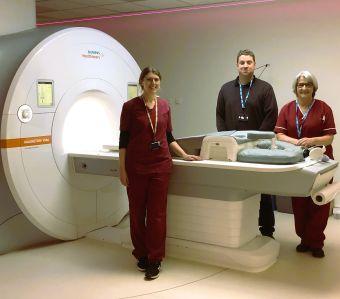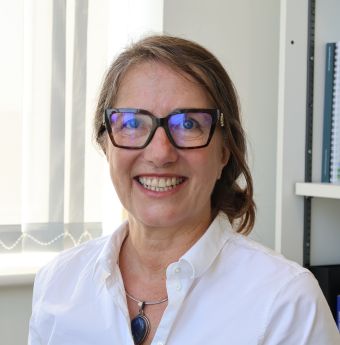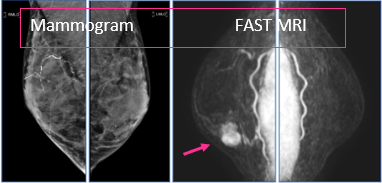
A breast cancer screening study is investigating whether a new, faster magnetic resonance imaging (MRI) scan, FAST MRI, could detect breast cancers earlier for women in their early fifties.
Led by North Bristol NHS Trust (NBT), the FAST MRI DYAMOND study is investigating whether FAST MRI, a new type of scan, can help with the earlier detection of small but aggressive breast cancers. The study is specifically focused on finding cancers early for women with average breast density. It aims to detect any cancers that may not be picked up routinely by mammograms during a first screening visit.
FAST MRI is a shortened form of breast MRI scan that has already been proven to find aggressive cancers smaller than a centimetre for women with dense breasts.
The study is jointly funded by grants of £1.36 million from the Medical Research Council and the National Institute for Health and Care Research (NIHR).
This is the first time in the UK that breast MRI scans will be offered to women with average breast density at their routine screening mammogram. At age 50-52, around 4 in 10 women are likely to have average breast density.
Dr Lyn Jones, Consultant Radiologist and FAST MRI Programme Lead, said:

“Each woman’s breasts are unique. As well as differences in size and shape, they vary by density, which determines how white or dark they look on mammograms. We know that FAST MRI can find cancers earlier than mammograms for women with dense breasts. The DYAMOND study will discover whether women with average breast density could benefit from having a FAST MRI scan too.”
Breast cancer is the most common form of cancer in the UK. The earlier breast cancer is detected, the better the chance of survival as it enables breast cancer treatments to be more effective.
A FAST MRI scan takes just three minutes – almost seven times faster than a standard breast MRI. It is hoped that scanning with FAST MRI will mean more women can benefit from state-of-the-art cancer detection and more lives will be saved from breast cancer.
Other benefits of FAST MRI compared to mammograms include there being no need to flatten the breast – which can cause discomfort, and no need for radiation (X-rays).

The support the FAST MRI study has received from members of the public and patients throughout the development of this research has been extraordinary and has culminated in the generous donation of an MRI scanner by the charity BUST (Breast Cancer Unit Support Trust).
Bristol-based charity BUST has donated over £2.5 million to purchase and install a Siemens Healthineers MAGNETOM Vida 3T MRI scanner (pictured, top) based at NBT’s Cossham Hospital. This has enabled the FAST MRI DYAMOND study by increasing NBT’s scanning capacity for outpatients, especially those with breast, prostate or gynaecological cancer diagnoses. The scanner was officially opened in January 2024.
FAST MRI DYAMOND will run over three and a half years at six NHS sites in Bristol, Cheltenham, Swindon, Truro, and London (at both St George’s and King’s College Hospitals). Researchers will recruit 1,000 women aged around 50 to 52 at the time of their first mammogram.
The results of this study will inform a follow-on trial to see if FAST MRI can both save lives from breast cancer and save the NHS money, by finding breast cancers earlier.
DYAMOND is the latest stage in the FAST MRI Research Programme which began in 2016.
Breast cancer patients and members of the public have had strong involvement in developing the Programme.
Mrs Janice Rose, from Independent Cancer Patients’ Voice, a patient advocate group, said: “I’m very interested to see if the FAST MRI technology is shown to be effective as it could have a huge benefit to women entering the screening programme. Early diagnosis for breast cancer gives women the best possible outcome.”
The NHS Breast Screening Programme offers women aged 50-70 years a mammogram every three years. By detecting breast cancers before they can be seen or felt, breast screening already saves around 1,300 lives each year in the UK.
For more information about the FASTMRI DYAMOND study, or to view a video showing what having a breast MRI involves, visit www.nbt.nhs.uk/fastmri-dyamond
If you are a woman aged 50-52, live in one of the six study site areas and are interested in taking part in the study, look out for FASTMRI DYAMOND information when you go for your first screening mammogram.
